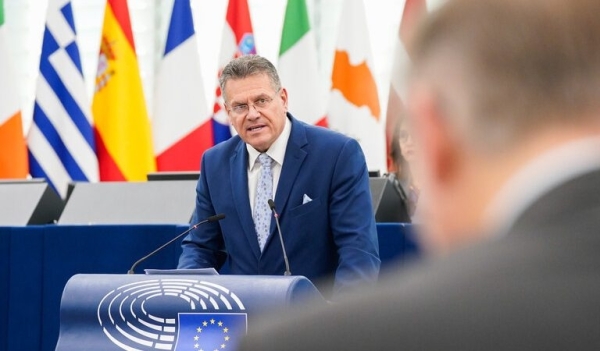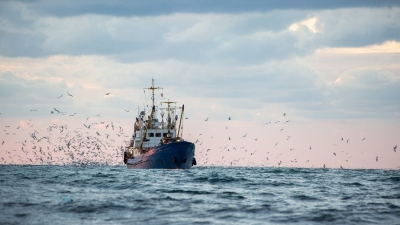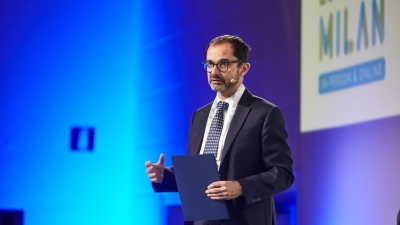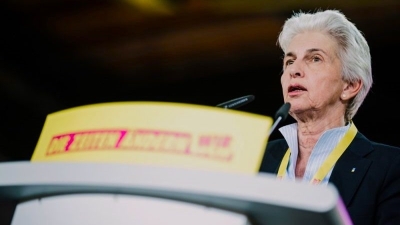EU Commission urges MEPs to overcome polarisation in food and agriculture debate

Maros Šefčovič, the vice-president of the European Commission, outlined on Wednesday (7 February) the work the executive is doing to respond to the challenges facing agriculture as part of a dialogue with food chain stakeholders while calling on MEPs to overcome political polarisation.
“Farmers have taken to the roads in recent weeks for a variety of reasons, and we must not oversimplify the situation. These are complex problems […] which is why the strategic dialogue must cover all the crucial issues and must involve all the stakeholders,” Šefčovič said during a debate in the European Parliament on Wednesday.
The debate, which lasted more than two hours and was entitled “Dialogue for a sustainable and adequately remunerated European agriculture”, was related to the strategic dialogue launched on 25 January by Commission President Ursula von der Leyen.
The idea is to reach a consensus on a new vision for the future of the EU food systems and overcome polarised stances that block decision-making.
In the future, “agriculture and nature must go hand in hand” Šefčovič reiterated in Strasbourg.
Some MEPs deplored the absence of the European Commissioner for Agriculture, Janusz Wojciechowski, at a time of great tension for the sector as a whole.
To respond to those tensions in the short term, von der Leyen announced on Tuesday that she wants to shelve the regulation on the sustainable use of pesticides (SUR).
Last week, the European executive also made a number of announcements, including the derogation on the set-aside requirements in the Common Agricultural Policy (CAP), and the addition of safeguard clauses on imports of Ukrainian products.
Farmers’ incomes, access to land and financing
After listening to a dozen MEPs from the main political groups, Šefčovič gave a summary of the issues the executive will be tackling this year, before delivering a “final report” before the end of the year.
Šefčovič admitted that this is a “crucial point”, which he intended to “address”. He emphasised the Commission would be working to facilitate access to land and finance, given the ageing of the farmer population in Europe.
According to a parliamentary report on generational renewal in agriculture, 57% of European farmers are over 55.
Šefčovič also said he was working with the Commissioner for Cohesion and Reform, Elisa Ferreira, on a specific policy to support the development of rural areas – schools, digital technology, transport – to attract young people to the agricultural sector.

EU Commission chief to withdraw the contested pesticide regulation
In a major blow to the EU’s Green Deal and Farm to Fork framework, European Commission President Ursula von der Leyen announced on Tuesday (6 February) that she will withdraw the Sustainable Use Regulation (SUR), which sought to halve pesticide use by 2030.
Regulating free trade
To improve farmers’ incomes and combat the excesses of the agri-food industry, the Commission is calling on all EU countries to ensure that the directive on unfair trading practices is “correctly applied” so as to “completely remove these practices from the sector”.
The Commission, Šefčovič told the MEPs, is currently inspecting its application in the EU, and is aiming for “uniform implementation” of the rules.
Trade agreements with third countries have been another hot topic and one of the main grievances levelled at the EU since the protests began.
The European left, particularly in France, has been the most vocal on this issue, criticising the European Parliament for voting in favour of all the agreements, especially the latest one with New Zealand.
“Our group is the only one to have unanimously rejected all the free trade agreements […] And don’t say that the agreement with Mercosur is on hold while negotiations continue“, Manon Aubry (GUE/NGL) told her fellow MEPs and the Commission.
Šefčovič replied: “I can confirm [that] the conditions for a conclusion have not been met”.
Many MEPs, mainly from the right, insisted on administrative overload, something the Commission also intends to deal with, but not alone.
“We also need to reduce transposition at the national level, and there are problems at the regional level… Let’s all make sure we keep bureaucracy to a minimum, to what is necessary”, Šefčovič stressed.
Finally, the aim of the strategic dialogue is to put farmers at the heart of decision-making, gather ideas for this new policy for the EU, and incorporate them into the next multiannual financial framework (MFF), he said.
“We will not take decisions without consulting farmers.”
No scapegoating
While the general mood was one of accusing opponents, only the centrist Renew MEPs took the European Commission’s line: “compromise” rather than “polarise”.
French MEP Pascal Cafin, in particular, denounced those looking for “a scapegoat”, be it “ecology” on the right or “free trade” on the left. He called for a compromise on three issues: income, ecological transition, and the fight against unfair competition.
“If you want to make a transition with free trade agreements that don’t protect farmers, you won’t succeed; and if you want to increase incomes without a transition, you won’t succeed either, because the main threat to incomes is climate change”, Canfin said.
Šefčovič stressed the importance of working on “constructive solutions”.
“It is high time to work to overcome the polarisation of our past debates, and there is no better place to start this process, to build bridges, to find common solutions than this assembly,” he concluded.

Farmers ‘gain a seat’ at the EU leaders’ table
After weeks of mobilisation across Europe, farmers’ protests seem to have gained a political foothold in the conclusions of the European Council summit on Thursday (1 February) which acknowledged the “concerns raised” by the sector and the “essential role” of the Common Agricultural Policy (CAP).
Read more with Euractiv




